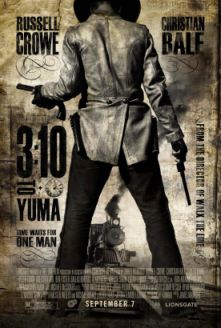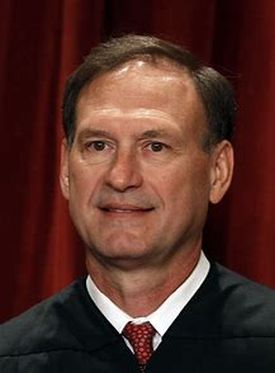Real words, real meanings
From The New CriterionWho was it who said that politics ceased to be interesting when everybody — that is, not just the politicians of both parties but also the voters who were once supposed to keep them honest and accountable — stopped caring about deficit spending? Those wise words, though I now forget where I read or who wrote them a year or two ago, suddenly came back to me when I saw the following pathetic headline to an editorial in the (London) Daily Telegraph in July. “The Government’s generosity on foreign aid ought to be linked to affordability.” Indeed it ought! But the insanity of borrowing money in order to give it away is now so much taken for granted, in the media as elsewhere, that even such a minor eruption of common sense as this strikes us as vaguely inappropriate, even offensive, like a profanity uttered in church. The author of the headline sounds apologetic about it. No more the thundering editorial “must” here but more of a wistful “ought to be.” Anything more emphatic might, after all, be thought insensitive to the presumptive sufferings of those on whose ostensible behalf the virtue of the foreign-aiders is being signaled.
I had a similar reaction to a New York Times headine which appeared the same day. “Lawmakers Grapple With Nagging Infrastructure Detail: How to Pay for It.” If the Times still had as much of a tether to reality as the Daily Telegraph you wouldn’t necessarily be able to tell whether the “nagging detail” of how to pay for a trillion dollar project was meant to be humorous or not. Yet I think it probably safe to say that, as the Times reporters see things, it really was a nagging detail, since on this occasion it was Republican lawmakers seeking to burnish their “bipartisan” credentials who were doing the nagging. In reality, “how to pay for it” didn’t even rise to the level of a nagging detail, since nobody believed that any conceivable package of tax increases and expenditure cuts (or increases to the budget of the IRS) actually would “pay for it.” The grappling lawmakers were just, like the British foreign-aiders, engaging in a bit of political theatre.
Whoever first made the point I mention above, about routine large and growing deficits as a political inflection point, the idea behind it was presumably that such ever-increasing indebtedness coincided with the end of “politics” as the word had always been understood in the past — that is, as an imperfect but necessary process of managing inevitable scarcities, of making hard choices, identifying priorities and balancing them against the least of multiple evils. Or working out what the trade-offs might be between the good things we want and what we are prepared to pay for them, or between upsides and downsides of the same good thing. When resources theoretically became, through the magic of what is now called Modern Monetary Theory, unlimited, then we found ourselves living in that political fantasyland which we now all inhabit, where any political wish can come true merely by writing a government check.
Nor is it merely by coincidence that, when having everything we wanted suddenly seemed not only possible but inevitable, people of different political persuasions started hating each other as they rarely had done before but as they so often do today. How dare you not want what I want when everyone can have everything he wants at no cost to anybody? Or anybody but “the rich.” Without the reality of scarce resources to restrain our fiscal desires, what possible reason can there be, apart from sheer evil nature, for anyone’s saying no to anything? I believe this to be one reason why conservatives, as the people most likely to say “no” to things that they think are not good for us, are now so hated where they used to be tolerated.
It’s not as if the grappling lawmakers don’t know these things, at some level. They can’t possibly be obscure or recondite intelligence. But what’s the point of living in fantasyland if it doesn’t allow you to believe that reality can be effortlessly bent to your will? And reality-bending is always and everywhere a matter of language. Rhetorically, at least, we were still in touch with reality for so long as the language we inherited from the most sober and precise writers and thinkers of previous generations was generally understood to correspond to hard and fixed realities. Such realities may be regarded as analogous to the real numbers expressing those annual revenues which once had to be reconciled, sooner or later, with other numbers representing expenditures. But the abolition of the once unbreakable connection between incomes and outgoes is analogous to the abolition of the once hard-won understanding of the link between words and their meanings. The “permissive” grammarians of the last century may have had to endure decades of obloquy from the likes of me, but their ultimate triumph shows them to have been the precursors of the Glorious Revolution we are now living through.
Almost a decade ago in the columns of The New Criterion I wrote of the transmogrification, at the behest of the left and for unabashedly political purposes, of the meaning of the word “lie” (see “Lexicographic Lies” in The New Criterion of October, 2012). To be a lie, a mere misstatement of fact once required the mens rea or guilty mind also required of a crime at law — in other words, an intention to deceive. But the chant of the anti-war left that “Bush lied, people died” required the abolition of the once mandatory distinction between “lie” and “mistake,” and, lo, the world’s dictionary-makers, eschewed the old, “prescriptive” meaning and went, as usual, with “common usage,” validating the new meaning of “lie” and thus impoverishing the language in exactly the same way but with much more momentous consequences as they had previously done by abolishing the distinction between disinterested and uninterested or restive and restless or compose and comprise or beg the question and raise the question. What can we do? asked the lexicographic liars. The people wish to remain untroubled in their ignorance by elitist scruples and fine but no longer useful distinctions, and it is our job to follow, not to lead them.
Which is just fine, of course, with the unscrupulous sort who do seek to lead them, in part by draining the language of politics and morality of its traditional meanings and substituting for them new ones more amenable to their own political purposes. “Lie” itself, in the Trump years, further expanded into the hitherto unconquered territory of a mere difference of opinion, as the Washington Post’s “fact checkers” showed when they slapped their invidious “Pinocchio” label on every occurrence of the President’s claim that the Mueller investigation was a “witch hunt”— as indeed it turned out to be. When it did, they didn’t therefore revise their total of 30,000 or so allegedly “false or misleading statements” in his four years in office. This was partly, I suppose, so that they and the rest of the media could, in their own eyes at least, lend a little plausibility to their constantly reiterated asseveration that Donald Trump’s opinion about the impact of irregularities in last year’s election — an opinion any investigation of the truth of which the Post and others on the left continue to insist there is no need — was and is nothing but a “Big Lie.”
Just in the last year or so we have seen a number of other new meanings for old words — meanings that are often the opposite of their more traditional ones but which people continue to use as if they still had those meanings. “Infrastructure,” mentioned earlier, is just one example. Formerly a matter of roads and bridges, airports and mass transit systems meant to facilitate commerce and, thus, economic growth, it now includes what The New York Times calls “Democratic priorities” like health-care and government-sponsored child-minding which were only yesterday elevated from “social spending” to “investments” and now are further promoted to “infrastructure,” along with that perennial will-o’the-wisp of “green energy.”
Two more words which, by their constant use in the advocacy media of the left, have lately undergone profound changes of meaning are “democracy” and “equity.” Both, indeed, have experienced a reversal of polarity, like “racism” and “fascism” before them. Just as “anti-racism” (also known as Critical Race Theory) is the new racism and “anti-fascism” is the new fascism, right down to its youth movement and the thugs in the streets beating up those who disagree with them, so “democracy” now may be taken to mean, in effect, oligarchy, through the simple expedient of opposing it to what is now being called “voter suppression.” This, as you are no doubt aware, is the new Democrat term of art for the mostly futile attempts by Republican state legislators — attempts which Joe Biden calls “the greatest threat to American democracy since the Civil War” — to prevent people from voting more than once. If you call the curbing of multiple voting “voter suppression,” which in a way of course it is, you have already made the case for calling the permanent Democratic oligarchy which the multiple voters mostly favor by the new name of “democracy.” Similarly, “equity,” which once meant treating people equally, now more often means, especially as it is used by the Biden administration and its apologists, treating them unequally.
The transformation in meaning of “democracy” and “equity” is less complete than that of “lie” — since so far as I know they have not yet found their way into our dictionaries — or even that of “racism” or “fascism,” both of which can still (just about) be used in their original and proper senses by those who are still permitted to eschew ideological jargon. Slightly less further along in the process of transition are the “information” twins, “dis” and “mis,” both of which are now routinely used in the media to mean an opinion, especially a scientific opinion, with which the writer or speaker disagrees — as in “Jen Psaki Says White House is Collaborating With Facebook to ‘Flag Problematic Posts’ That Spread ‘Disinformation’”
Likewise, the word “history” can often be found in the media with the meaning it bears (or used to bear) only in the ideological jargon of the left — as in the supposed “history” of the New York Times’s 1619 project, attempts to correct or re-contexualize which, or even to tell a different story, can therefore be called “anti-history,” as they are by David Graham in The Atlantic. The idea that any history which cannot be comfortably slotted into the ideological master-narrative amounts to “anti-history” is just another form of the media’s specialized use of “truth” or “lies” to mean narrative-friendly or not narrative-friendly, respectively.
One word which I have been particularly interested to observe in the process of meaning-metamorphosis just since the beginning of this year is “insurrection,” as applied to the riot by Trump-supporters in the U.S. Capitol last January 6th. Here, for instance, is Jonathan Chait of New York magazine’s online “Intelligencer” asking readers to “Imagine a 9/11 Commission If the Hijackers Had Allies in Congress.”
In the aftermath of the January 6 insurrection, when both parties agreed on the need for an investigation into the attack, the shorthand that entered the lexicon was 9/11-style commission. When, on January 12, Illinois Republican Rodney Davis introduced a bill to create a commission, he noted that “the commission’s structure is in line with the 9/11 Commission.” “Momentum is growing on Capitol Hill for an independent 9/11-style commission,” reported The Hill later that month. But when media accounts these days describe the political wrangling over the investigation, the once-ubiquitous term now rarely appears. The reason for this is that the entire political context for the investigation has changed. The insurrection was briefly considered an event akin to 9/11: an outside attack, which in its horror would unite the parties. Now Republicans see the insurrection as an action by their political allies. Some of them are embarrassed by the insurrection and wish to avoid discussing it, while others see its members as noble martyrs. But almost none of them actually have the stomach to denounce the rioters any more.
I suppose it should come as no surprise that neither Mr Chait nor New York should see anything untoward in comparing the demonstration-cum-riot to an attack by a foreign power which killed nearly 3000 Americans 20 years ago. No more so than Joe Biden’s calling it the “worst attack on our democracy since the Civil War” — a title which, in Mr Biden’s idiosyncratic mythography, the riot appears to have held for less than three months before Republican attempts to tighten election security (see above) took it away. In the space of fewer than 200 words, Mr Chait uses “9/11″ and “insurrection” four times each and “attack” twice (not to mention “horror”), besides the mention of 9/11 in the title. The attacks of 9/11 were, of course, not an insurrection but an act of war, like the Japanese attack on Pearl Harbor, and nor could a genuine insurrection — an armed rebellion against legitimate authority according to the dictionary — have taken that form. But such distinctions, like that between “lie” and “mistake,” have no place in the lexicography of the left and can be abolished, apparently, in Mr Chait’s view, merely by using the words several times in juxtaposition with each other.
In doing so, he had behind him the authority (such as it is) of The Washington Post which editorialized that: “The Jan. 6 Capitol attack was, in fact, a violent insurrection” — thus incidentally revealing a similar revision in the meaning of the word “fact” (as in “fact checkers”) from something done (factum in Latin) to something whose truth they of the governing elite who run the Washington Post as well as the government insist upon. Similarly, the media routinely treat disastrous or even apocalyptic climate change, proleptically, as “fact” (thus producing “denialism”) when it is still only a prediction, no matter how reliable the computer models that predict it may be. But this is just another distinction that the media have no further use for.
More than once in these pages over the last five years I have had occasion to mention the suspicion with which wisdom should regard any journalistic product claiming to have a special relationship with “Truth.” If “truth” is your brand, then it isn’t the truth anymore, since it amounts to a patently untrue claim of infallibility. Any publication wishing to reassure its readers of the honesty both of its reporting and of its mistakes would do better to say, in the words of a message from our editors: “At The New Criterion we will always call things by their real names.” That’s a promise we — or anyone — can keep, but one that you will never hear from The New York Times or The Washington Post, or any of the left-wing media that slavishly follow their lead.
Discover more from James Bowman
Subscribe to get the latest posts to your email.







